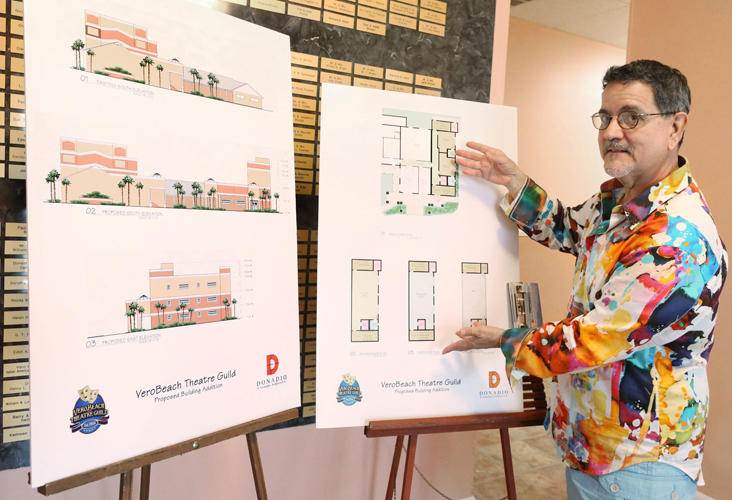
As the Vero Beach Theatre Guild wends its way through the permitting process for a new three-story building, another even crazier maze gets navigated on stage as the all-volunteer groups stages another Gilbert and Sullivan opera this summer: “The Mikado.”
Hoping to take in double the $25,000 in ticket sales for last summer’s “Pirates of Penzance,” guild president Mark Wygonik points out that “Pirates” is the duo’s second most popular show. “Mikado” ranks No. 1.
For Wygonik, it’s all about royalties – the kind you pay, not the kind you obey. “The Mikado” is in public domain and is free to theaters to stage.
As for the other kind of royalty, the bloodthirsty Mikado has to rank among the worst: The story line turns on his edict that anyone flirting must be put to death. Fortunately for the town of Titipu, the vicious Japanese ruler gets a dose of creative conflict resolution, but not before a cast of characters including the lovers Nanki-Poo and Yum-Yum are threatened with beheading, boiling and burial alive.
And of course, the most preposterous solution saves the day, and a silly song ensues ushering the show to a close.
If it all sounds like a lot of laughs to a lot of people, that would make Wygonik very happy. Fully half of last summer’s “Pirates” cast and crew were newcomers and many of them have stayed on to audition for other shows or join a backstage crew.
“That’s community theater,” says the veteran director, who has been a part of the Theatre Guild since it was based in Riverside Theatre in the 1970s and early-1980s.
For an organization with a penchant for drama, there appears to have been not much thus far in getting the new building past planning and zoning officials. That approval came in early March; any day, the Guild expects to get the building permit, so that the general contractor, Bill Bryant and Associates, can get work underway. The architect for the building is Tony Donadio, who contributed his time to the non-profit venture in the planning and design process.
Bryant’s firm donated seed money for the project, Wygonik says.
The Guild’s season officially wrapped up last week-end, as “The Miracle Worker” closed its three-week run. There are seven scheduled performances of “The Mikado,” from July 17-27.
Auditions for “The Mikado” took place earlier in May with final call-backs held Monday evening. A cast will be announced shortly.
Wygonik is hoping for the first phase of construction – security fencing and samples of the parking lot — to have started by the time the operetta opens in July. “We’re trying to time it so people coming to see ‘The Mikado’ can see the first phase starting.”
They hope to begin laying the foundation by August.
The 4,800-square-foot building is relatively simple in terms of construction. There are bathrooms, but no kitchen, and the upper two floors can remain unfinished in terms of paint and drywall, at least until funds are raised for completion. The Guild has set a goal of $1 million; $370,000 has been raised so far.
“We’re going to be fundraising for a least a year after it’s built,” he says.
The second floor is rehearsal space, for times when one show is being mounted on the main stage of the Guild’s current space, a converted church near the county’s administration building, acquired and renovated in the mid-1980s when Riverside Theatre decided to turn professional. Prior, the Guild performed in the old Vero Beach High School auditorium. Begun in 1958, the Guild is the second-oldest arts organization in the county, topped only by the Vero Beach Art Club.
The late Betty Abbott, one of many supporters who frantically raised funds for the renovation of the church building, left a sizeable sum to the Guild in her will to one day add to the facility.
Cramped quarters have previously forced the ever-resilient Guild to resort to renting not only rehearsal space, but storage for costumes and sets, an expense they have come to realize can offset the cost of constructing a new building on site. As it stands, the entire third floor is expected to be used for storage. The Guild is still trying to decide on details like whether to add windows to the upper floors.
The first floor will be used for dressing rooms.
“We’d love to have it wrapped up for our March musical,” Wygonik says. “They’re saying four to six months, which is great.”



